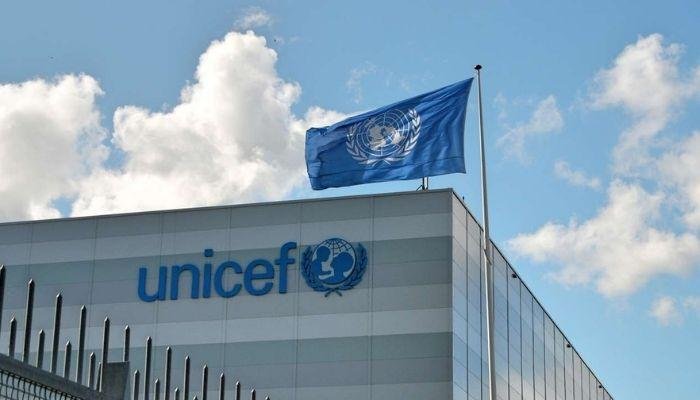…. As global donor fatigue deepens, a silent emergency grips Nigeria’s northeast
LAGOS, Nigeria- A looming humanitarian disaster is taking shape in northeast Nigeria, where the World Food Programme (WFP) is set to close half of its lifesaving health clinics due to a critical funding shortfall.
This is not merely a budget deficit — it marks the slow collapse of a fragile safety net that has kept millions afloat in a region battered by over a decade of insurgency, mass displacement, and entrenched poverty. In this analysis, Korede Abdullah examines the far-reaching implications of this decision for Nigeria’s healthcare system, with a focus on the already overstretched facilities of the northeast.
WFP plans to shut down 150 out of its 300 health clinics in the region by August,2025 leaving an already vulnerable population exposed to hunger, disease, and mortality. The clinics have served as hubs for child nutrition, maternal care, vaccination, and disease prevention, especially in remote areas where government presence is minimal.
“This is not just about losing clinics — it’s about losing the only access to health and hope that many families have,” said Chi Lael, WFP’s Head of Communications in Nigeria. “Lifesaving treatment for 300,000 children will be cut off.”
Worsening Malnutrition Amid Record Food Crisis
Nigeria is currently facing its worst food crisis on record, with 31 million people at risk of hunger nationwide. In the conflict-affected northeast, nearly 1 in 5 people face acute food insecurity. Communities already pushed to the brink now face the collapse of the only lifeline many have known.
According to the Africa Health Report’s findings, malnourished children in the northeast are at heightened risk of diseases such as pneumonia, measles, and malaria — illnesses that thrive when immune systems are weak. WFP clinics have long been the frontline defence. Their disappearance threatens to reverse years of progress.
Despite launching a $130 million emergency appeal to keep operations running through 2025, WFP has received no new donor funding to date. “This is a race against time,” Lael warned. “The need is rising, but international attention is fading.”
Donor Fatigue Reshaping Africa’s Humanitarian Landscape
The crisis in Nigeria is not isolated. Across Africa — from Sudan to the Sahel — aid agencies are scaling back amid shrinking global support.
Analysts say the shift reflects a dangerous trend: global aid decisions increasingly follow political priorities, not humanitarian need. The COVID-19 pandemic, Russia’s invasion of Ukraine, and economic pressures have prompted many Western countries to redirect foreign aid to domestic concerns.
“This is a preventable crisis,” said Médecins Sans Frontières in a July statement, citing rising child malnutrition in northern Nigeria. “The problem isn’t drought or conflict alone — it’s the international community walking away.”
What Experts Are Saying
Experts say the erosion of needs-based funding is fuelling inequities, with African emergencies often sidelined as “less strategic.”
Indeed, Nigeria’s northeast — one of the world’s longest-running humanitarian emergencies — has largely disappeared from global headlines.
“Every cholera death, every malnourished child left untreated — these are not inevitabilities. They are outcomes of political neglect,” said Dr Nnenna Nwosu, a Lagos-based health economist.
A Fragile Region Faces Potential Collapse
The stakes are even higher given the region’s fragility. With Nigeria allocating only ₦326,000 ($220,000) this year for malnutrition response in high-burden states, the federal government lacks the capacity to fill the gap left by international agencies.
The figure is staggering — not just in its insufficiency, but in what it reveals about budgetary priorities and governance failure.
“Nigeria’s reliance on oil revenue, combined with corruption and political instability, means we are never truly prepared to manage crises internally,” said Dr Nwosu.
Chi Lael of WFP echoed the concern: “The fear is that when food and health services end, so does stability in northern Nigeria.”
Humanitarian groups have long warned that food insecurity is a powerful driver of extremism, with insurgent groups often exploiting desperation. In the absence of aid, these groups may fill the void by offering food or protection — deepening insecurity in a region already teetering on the edge.
A Silent Emergency in Plain Sight
The closure of WFP clinics is more than a budgetary issue — it’s a human crisis unfolding in real time. Yet, it is doing so quietly, without the global attention or urgency it demands.
The international aid model — based on voluntary contributions — is increasingly proving unsustainable for protracted crises. What happens when compassion fatigue meets political apathy?
Without immediate action, aid workers warn that hundreds of thousands of children will suffer, maternal mortality will rise, and infectious diseases could spread unchecked.
Most of all, hope — already in short supply — will become a luxury the northeast cannot afford.
The call from the ground is clear: funding must be restored, and global attention must return before the silent emergency becomes a full-scale catastrophe.


